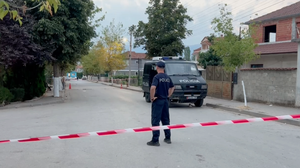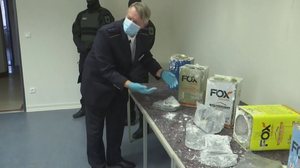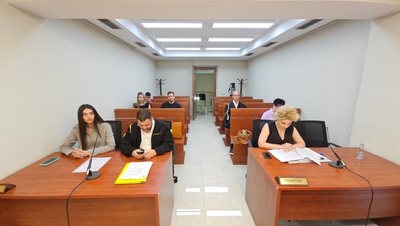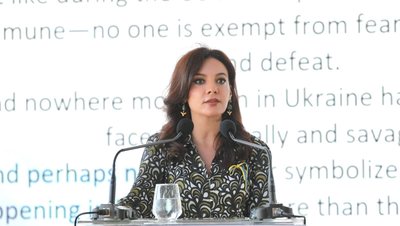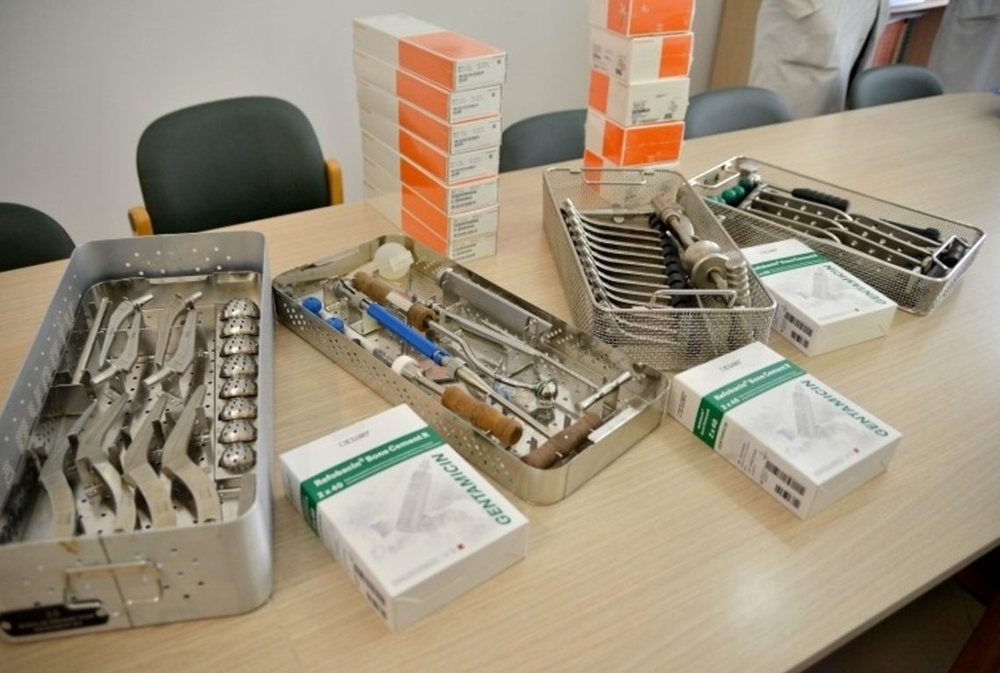
The chronic shortage of orthopedic prostheses in Albanian public hospitals forces hundreds of patients to pay under the table or buy them out of pocket through a system that favors corruption.
About 8 months ago, Lumja, 65, went to the University Trauma Hospital due to leg pain. The answer she received after the examinations was shocking: she needed to have surgery on her leg and have a prosthesis fitted.
But beyond health problems, the patient also faced a financial bill.
“I asked the doctor how much the surgery costs? He said it’s free, but you’ll just have to buy the prosthesis,” Lumja says. “How much does the prosthesis cost, I asked? He told me that the prosthesis for the leg you need costs 3,500 euros,” she added.
While the cost of the prosthesis was very high, Lumja says she looked for an alternative solution to get it for free, but in the public health system, she had to wait up to 3 years. In these conditions, she reached out to the children for help and purchased the prosthesis according to the doctor's instructions.
"The doctor himself would take it with the prescription in hand, and we would buy it at the pharmacy near the Military Hospital, which only sold prostheses. I bought the prosthesis and took it to the doctor, and then he performed the surgery on me," she emphasized.
This is not an isolated case.
According to a report published in May 2025 by the association Together for Life, patients often face long delays in receiving free prostheses, and in many cases, are forced to purchase the necessary equipment for the intervention themselves.
Alma Lahe, an expert at the association "Together for Life", emphasizes that the lack of prostheses and long waits create space for corruption, where only those who pay under the table benefit. In following up on a case of a patient from Elbasan, the association had discovered that the list of patients waiting for a prosthesis was in the hundreds, while the number of prostheses available was many times smaller.
"These shortages create conditions for corruption to flourish in the provision of services. Those who are willing to pay under the table benefit. Those who cannot afford to pay either receive the service late or do not receive the service at all, resulting in a deterioration in their health," Lahe stressed.
Reduction and long waits
The lack of orthopedic prostheses has been a problem in the Albanian healthcare system for at least two decades. According to the Ministry of Health, the number of patients who have received free prostheses in the last 5 years is 1,735 people.
In 2016, the Ministry of Health and Prime Minister Edi Rama promised to save chronic patients about $2 million a year by providing them with free prostheses. The ministry promised at the time that free prostheses would be offered in the orthopedic services of several regional hospitals.
But data obtained by BIRN shows that this service is currently limited to four regional hospitals out of eight that previously offered it, while patients face long waits to obtain it for free.
According to the Ministry of Health, free prostheses are now offered in orthopedic services at the regional hospitals of Durrës, Elbasan, Memorial Hospital in Fier, and the University Trauma Hospital.
The ministry also stated that in emergency cases, patients were provided with free prostheses for a period of 15-20 days, while for other cases, the longest waiting time is 12 months.
Data previously provided by the Ministry of Health shows a different reality. According to a previous response, at the Trauma Hospital and the Fier Regional Hospital, the average waiting time was 3 years.
Asked about the waiting time for patients for orthopedic prostheses at the University Trauma Hospital, orthopedic doctor Arben Zeneli emphasized that the waits could be even longer.
"As far as I know, there are problems. To close the cases planned so far, at the current pace, it could take 5 years," Zeneli told BIRN.
Alma Lahe from "Together for Life" blames the low budgeting for the health system for the lack of prostheses, which according to her results in poor quality, unsustainable and costly services for patients.
"Serious multidimensional interventions are needed: better analysis of the situation, increased budget and its good management, as well as the establishment of a functional monitoring and control system in order for the service to reach the patient," said Lahe.
"Those who need prostheses, by following the proper procedures, should benefit within a reasonable timeframe and at no additional cost," she concluded. /BIRN/






